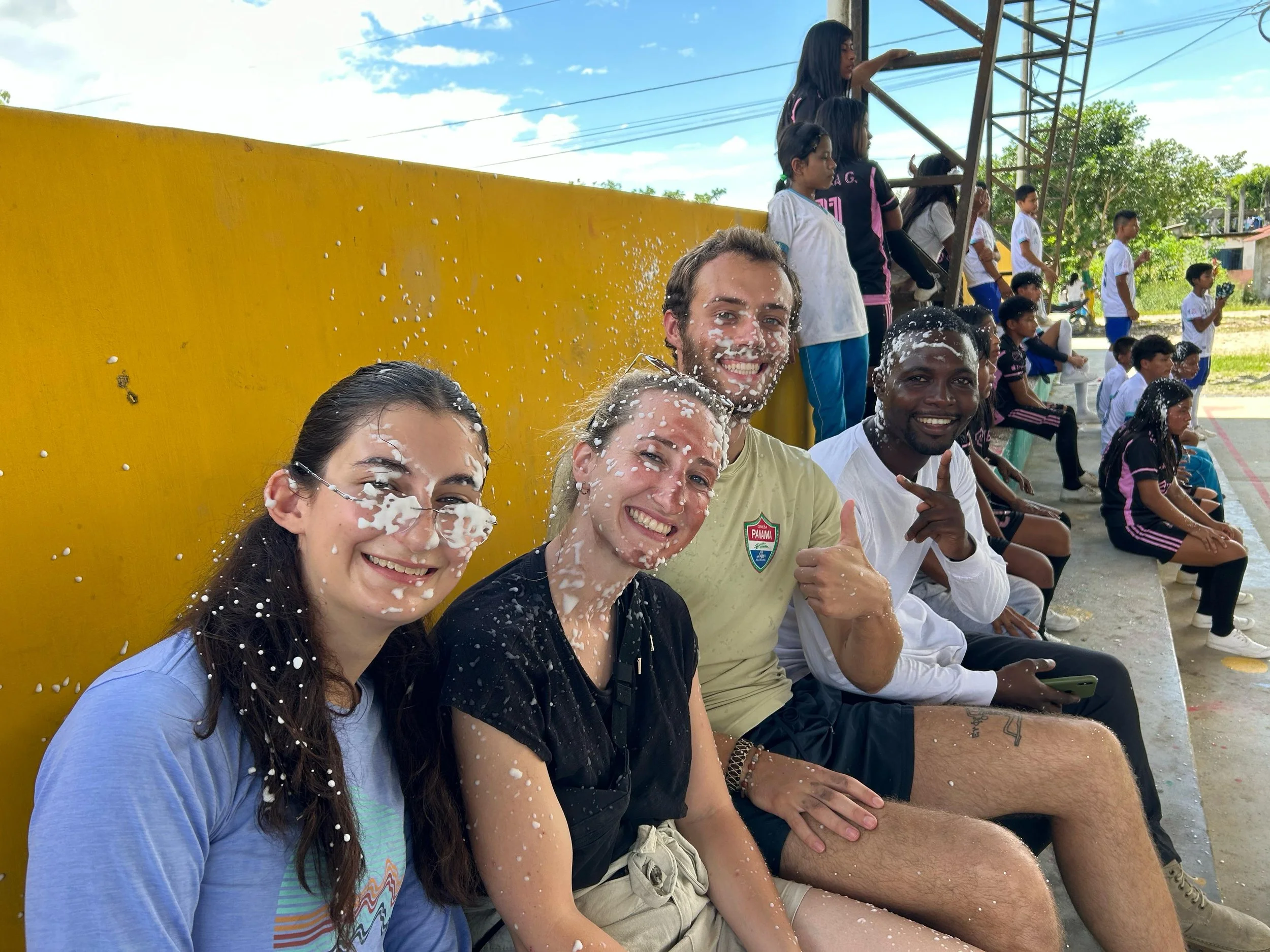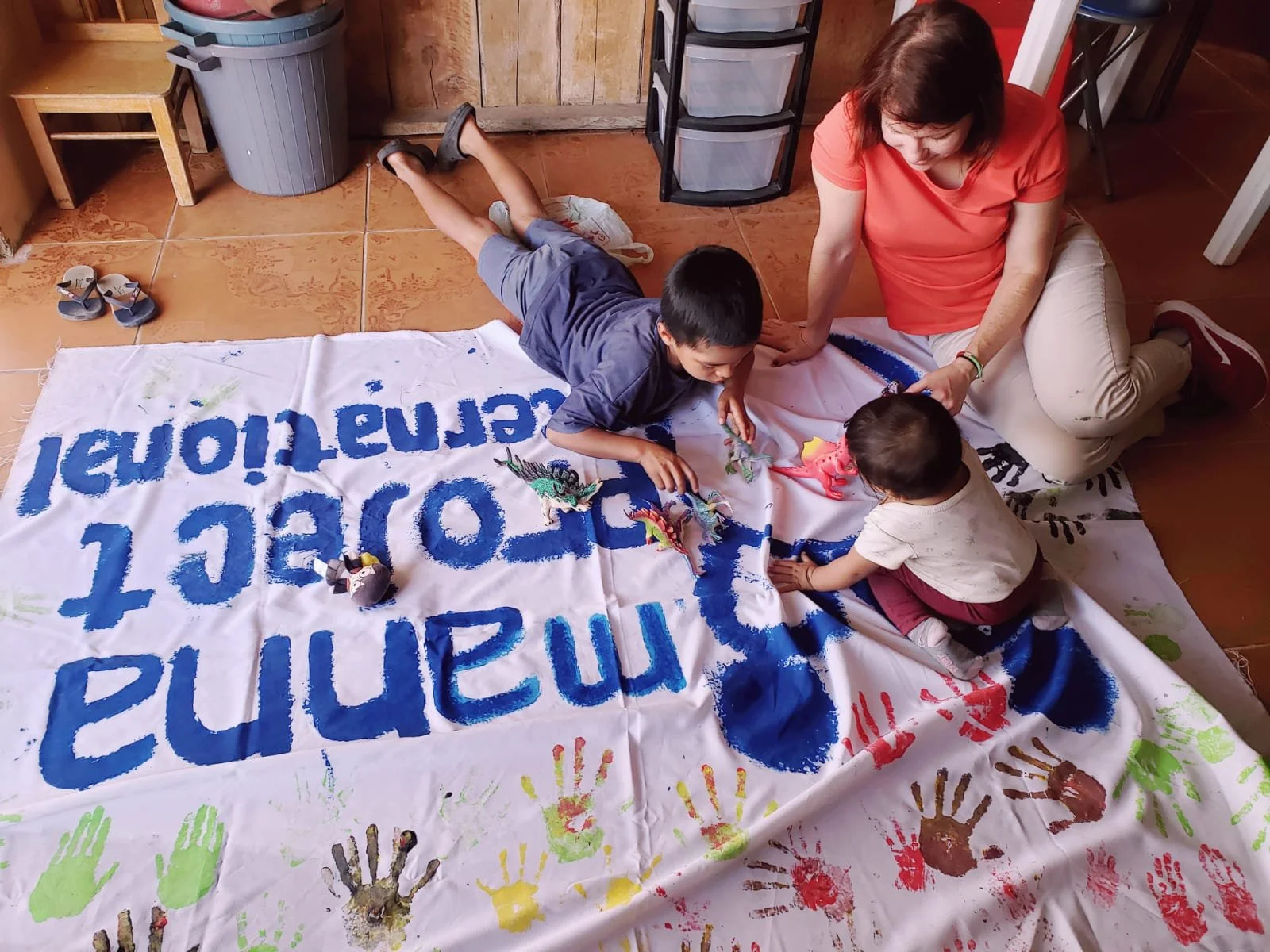By: Elena Walker
March: the month I found out I was being mandated home from study abroad in Costa Rica and my plans to go to Ecuador for five weeks in the summer had also fallen apart. In those first few days, with how hectic it felt trying to pack 3 months of my life up to move back to a United States I was worried would not be the same as I had left it, my mind naturally blocked out any extra stressors or negative thoughts that threatened to bubble to the surface. It wasn’t until I sat alone, in my room, quarantined a few weeks later that I began to fully process what had happened and what was going to happen. The latter of which instilled more fear of the unknown in me than I had ever experienced before. I learned that I had the opportunity to still work with Manna Project for the summer, but it would be on a virtual platform. I figured that it would be better than nothing, considering many of my friends’ internships were severely shortened or cancelled altogether. Although MPI sent various emails over the weeks leading up to the internship with helpful information, I had no idea what to expect (or more importantly what I would be missing out on) for this virtual experience.
Within the first week, I had met the other 9 interns, grown accustomed to the basic weekly schedule, and learned that we would be receiving a lot of professional development training. Of course I was grateful and recognized that these career trainings and seminars would have been less numerous on-site in Ecuador, but I still longed for the possibility of a deep cultural experience that had drawn me to Manna’s program in the first place. I looked to my language exchange beginning the next week and hoped it would satisfy my desire to travel and have a profound cross-cultural connection.
By the end of week one, a supervisor gave me my partner’s name (Cynthia) and WhatsApp number. I eagerly reached out to her and was interested to see what her level of English was going to be. From our short text conversation leading up to our first call, I quickly ascertained that Cynthia was fairly proficient in the language. This both excited me and made me a bit nervous as I did not want to frustrate her with my more intermediate level of Spanish. I went into our first call with an open mind and high expectations for how the exchange was going to play out which I realized was probably a dangerous sentiment. I accepted the fact that it would either be a success or I would be left with more regret of not being in Ecuador.
Our first Zoom call was on the Wednesday of the second week of my internship. I will admit the initial saying “hi” (or “hola”) and getting into the beginning of our conversation was a bit awkward, but that is to be expected when you are meeting someone for the first time over a computer screen. The awkwardness only lasted 5 minutes, and we began to feel comfortable as the conversation progressed into both of us excitedly telling the other about where we grew up. We spoke in Spanish for the first 30 minutes, and for once in my life I felt completely unjudged and at ease speaking my second language even though I knew I was butchering certain tenses and sentence structures.
Cynthia was patient and understanding as she would only correct me or remind me of words when I directly asked for her help. The last half of the call was spent in English as she explained some of her favorite aspects of her community, Sangolquí, and apologized for her lack of mastery of the language. We soon came to realize that we both were at similar language levels, could hold a conversation, but just needed practice speaking and exposure to natives conversing in our respective second languages. I ended the call knowing I had grown in my confidence speaking with natives and gained an inside view into Ecuadorian culture and customs.
The following calls proceeded in a similar manner, with us both teaching the other about an aspect of our society, swapping funny stories, and just talking about our plans for the weekend. Even though what made us different was starkly apparent, the similarities and shared passions that bound us together were also evident. They might have been harder to see from first glance, but they existed nonetheless. We discovered that we both were in band in high school, are about the same age, believe we have the world’s cutest dogs, and love learning different languages. Food is also a huge part of our lives, and we have bonded over our love of famous dishes in each of our countries. From pollo asado to mac n cheese, we love to eat!
We also have had difficult discussions about race relations in the United States and were able to compare and contrast that with the complex racial identities within Latin American society. She has become someone I can talk candidly with about how I view my country and the struggles it faces as she listens and learns about Americans and American culture. Consequently, she is able to enlighten me about the Latina way of life and how she views the world from her cultural perspective. I have learned a lot about her culture and in return come to know myself and my society better through our interaction and her reactions to American news and our customs.
The expectations of a deep connection and cultural immersion that I had were somehow exceeded. I keep trying to remind myself that it’s still not Ecuador, but I would argue that this experience has been pretty dang close. I look forward to continuing my exchange with Cynthia, even after my internship ends, and hopefully getting to visit the country that I have learned so much about. I already have an invitation to dinner from Cynthia’s mom when I arrive.









